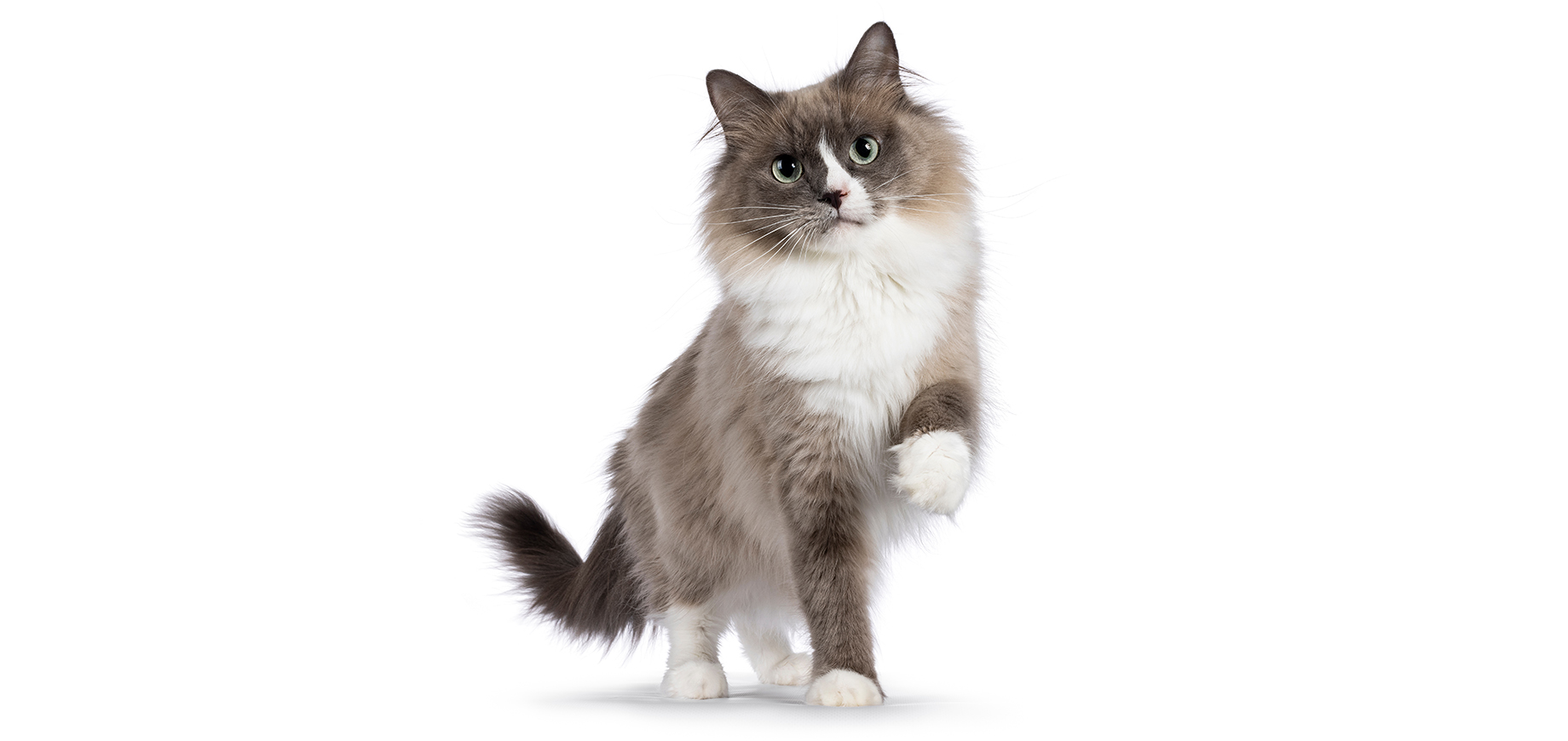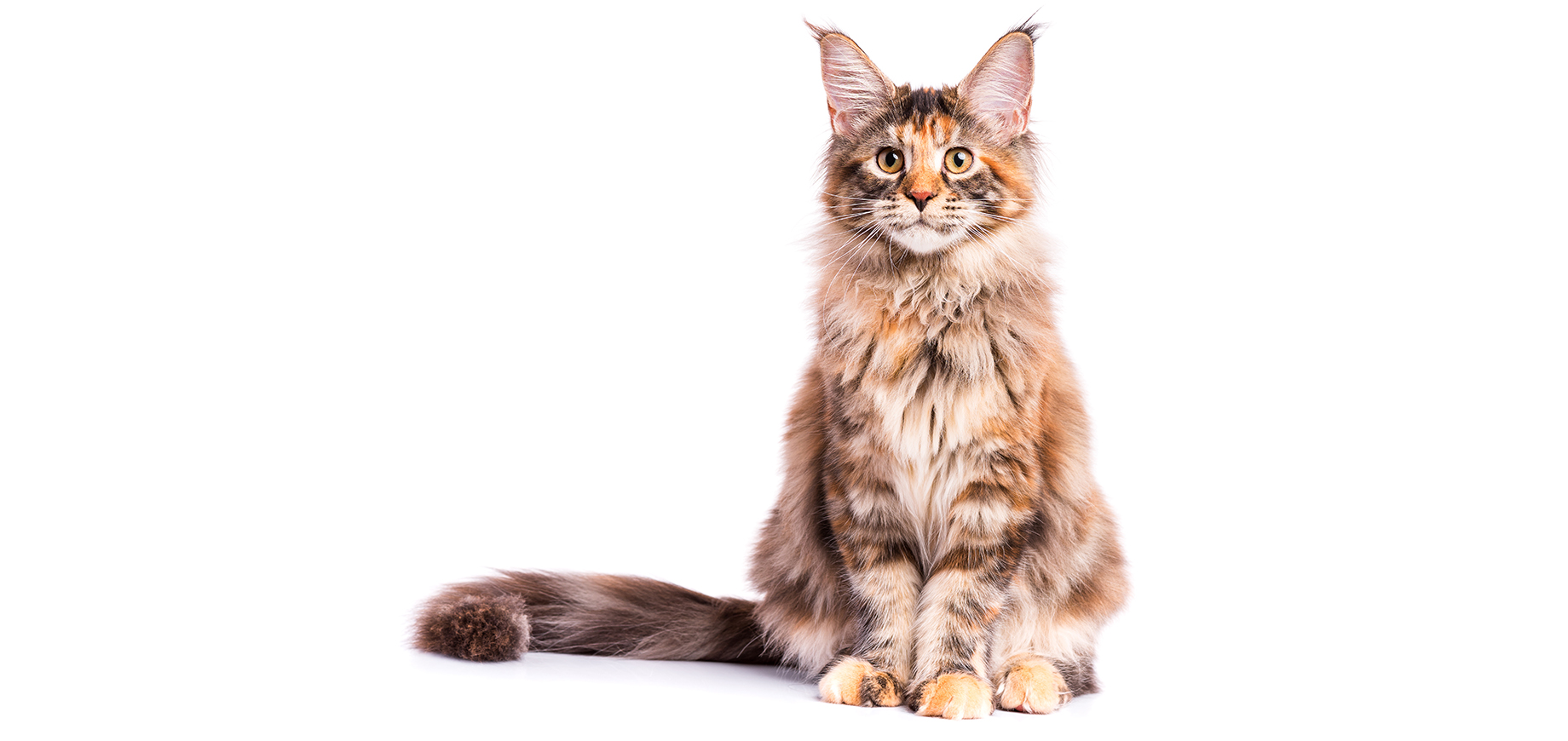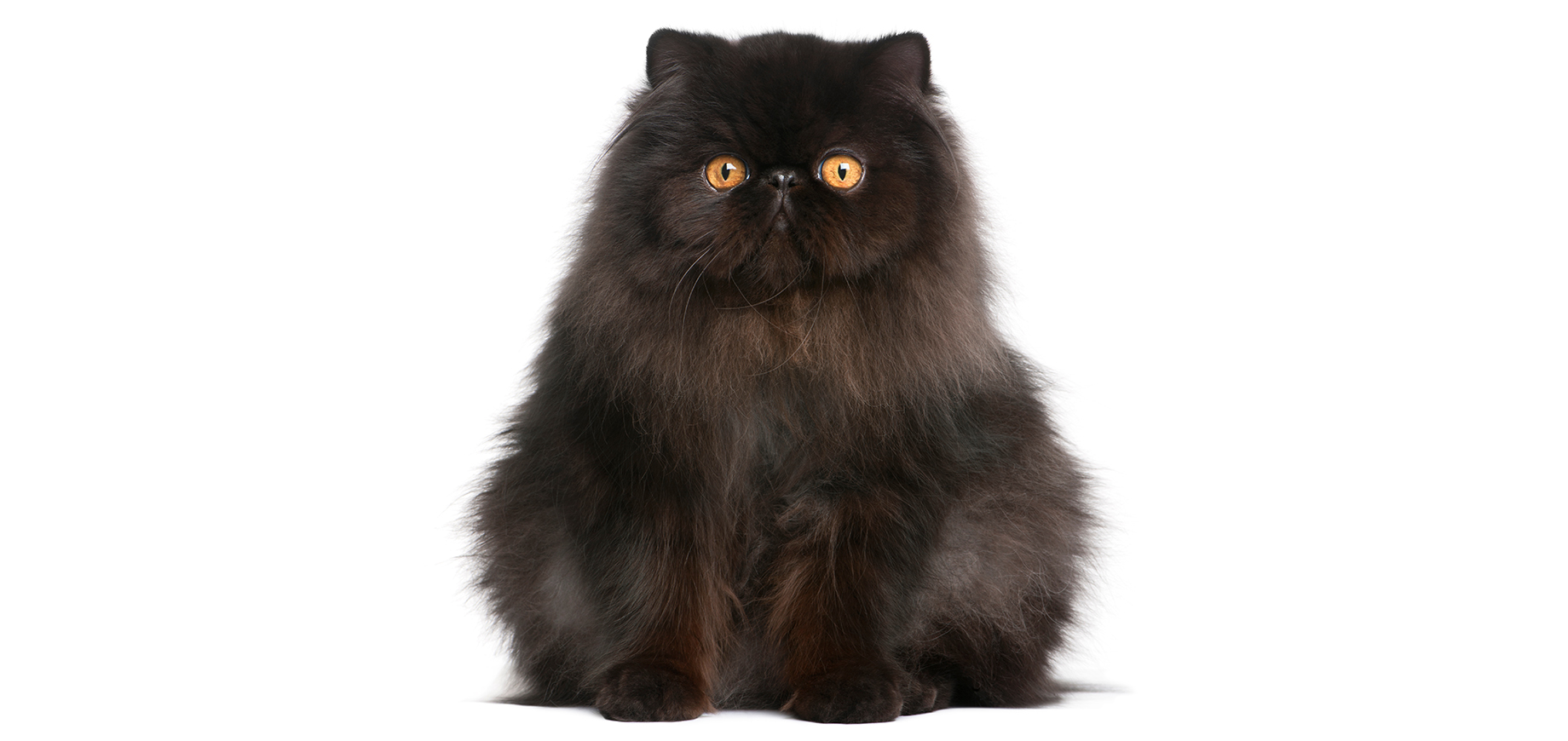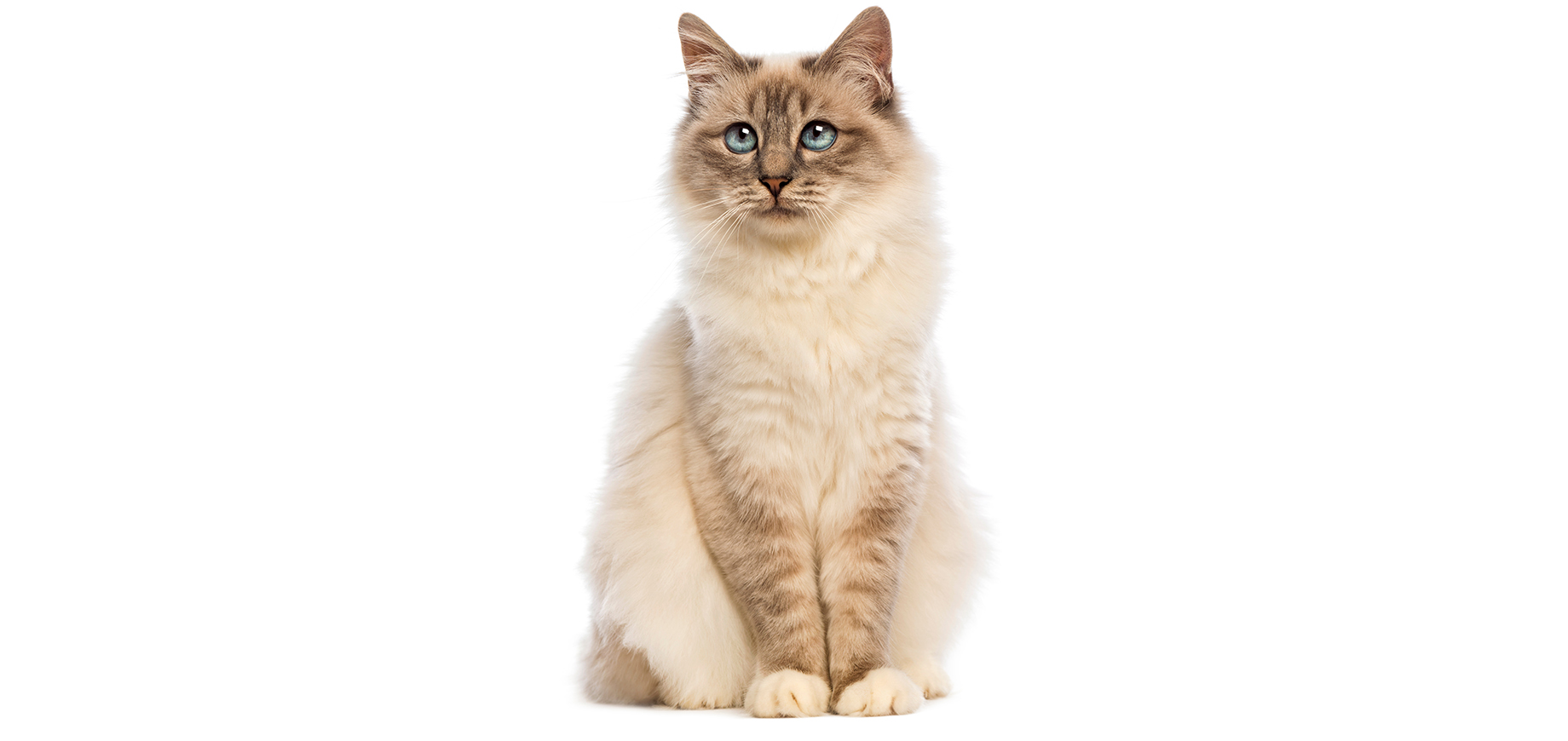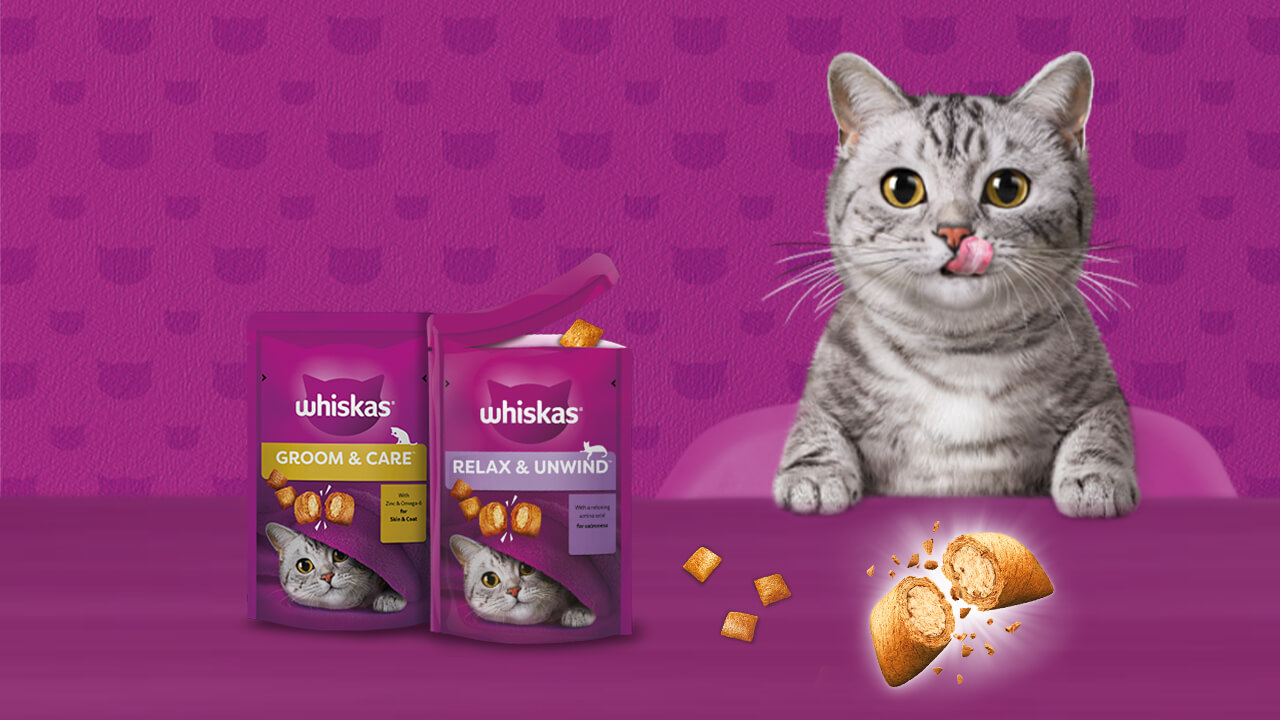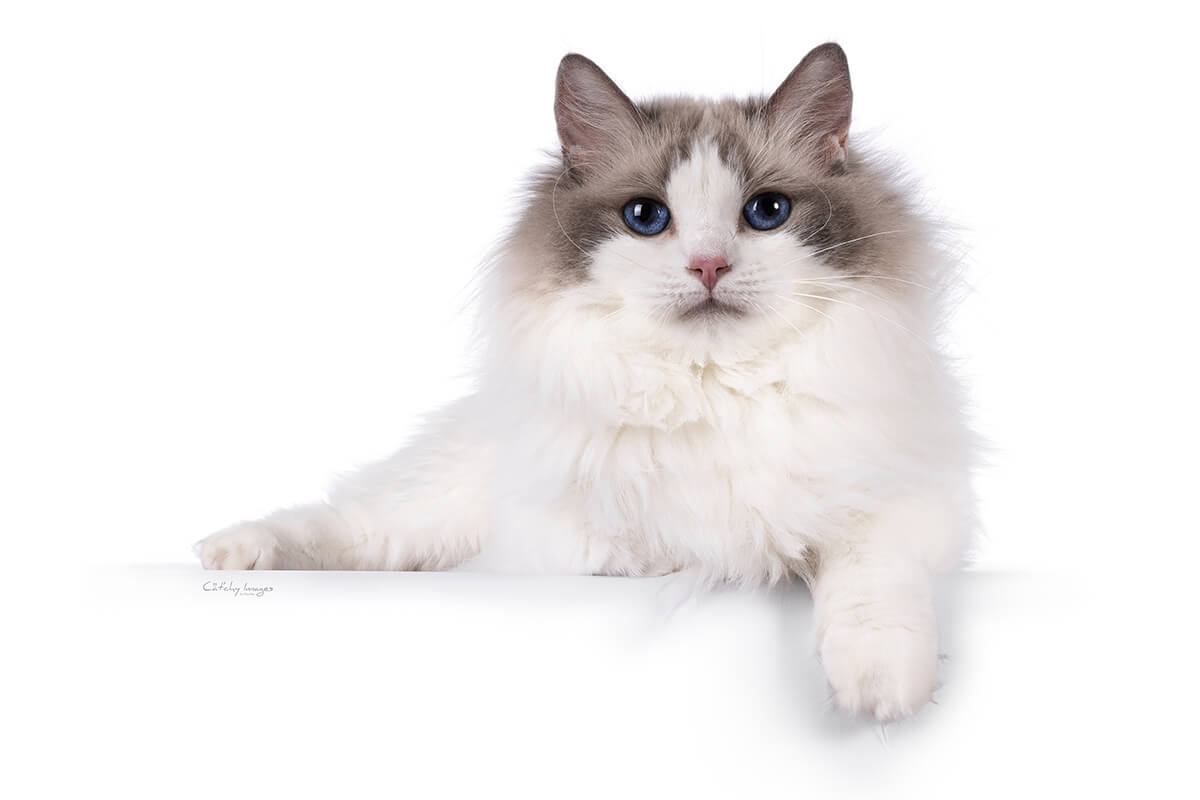
Ragdoll cat overview
Ragdoll cats are famously known for their sparkling blue eyes and soft semi-long coats, which give them a particularly beautiful appearance.
Ragdoll cats make excellent pets and are known for their kind and friendly personality. They have thick coats and should be brushed at least twice a week with a good-quality brush.
Ragdolls are large breeds and can experience weight and joint issues. Ragdolls can also be susceptible to developing Hypertrophic Cardiomyopathy (HCM), a heart condition, due to their genetic predisposition. Ragdoll life expectancy ranges from 12-17 years, however, some pets can live much longer.
Breed history and origin
The Ragdoll breed was created by Anne Baker in California in the 1960s, by mixing two breeds with blue eyes, pointed fur and long, soft coats. The Ragdoll cat’s sweet personality was a trait Baker was motivated to breed. ‘Josephine’ a white, semi-feral cat, was believed to be mixed with other black cats Baker owned to create the first foundation’ ragdolls'. Ragdolls were imported to the UK in 1981.
The origin of the Ragdoll name comes from Josephine, who tended to go limp and relaxed when picked up, however, this is not an accurate characteristic of the breed today.
Other commonly mixed breeds include:
Key characteristics of the Ragdoll cat breed
Ragdolls were specifically bred for their loving and kind personalities, they are true “lap cats”, as they crave human affection and cuddles. The ragdoll cat’s characteristics make them the perfect family pet. Their bodies are generally large and muscular under those super soft coats, and they draw everyone in with their huge blue eyes and stunning appearance.
Physical characteristics of the Ragdoll cat breed
Ragdoll characteristics include large and fluffy paws and tails, and a luxurious coat which is known for its “pointed” colouration - meaning the head, ears, legs and tail tend to be darker than the body, this gives them a particularly ‘fancy’ look! The average female weighs up to 6.8kg and the average male can reach up to 9.1kg, they tend to be one of the larger domesticated breeds.
Undeniably the Ragdoll’s most notable features include their striking blue eyes and silken coat, which makes them an instantly recognisable breed.
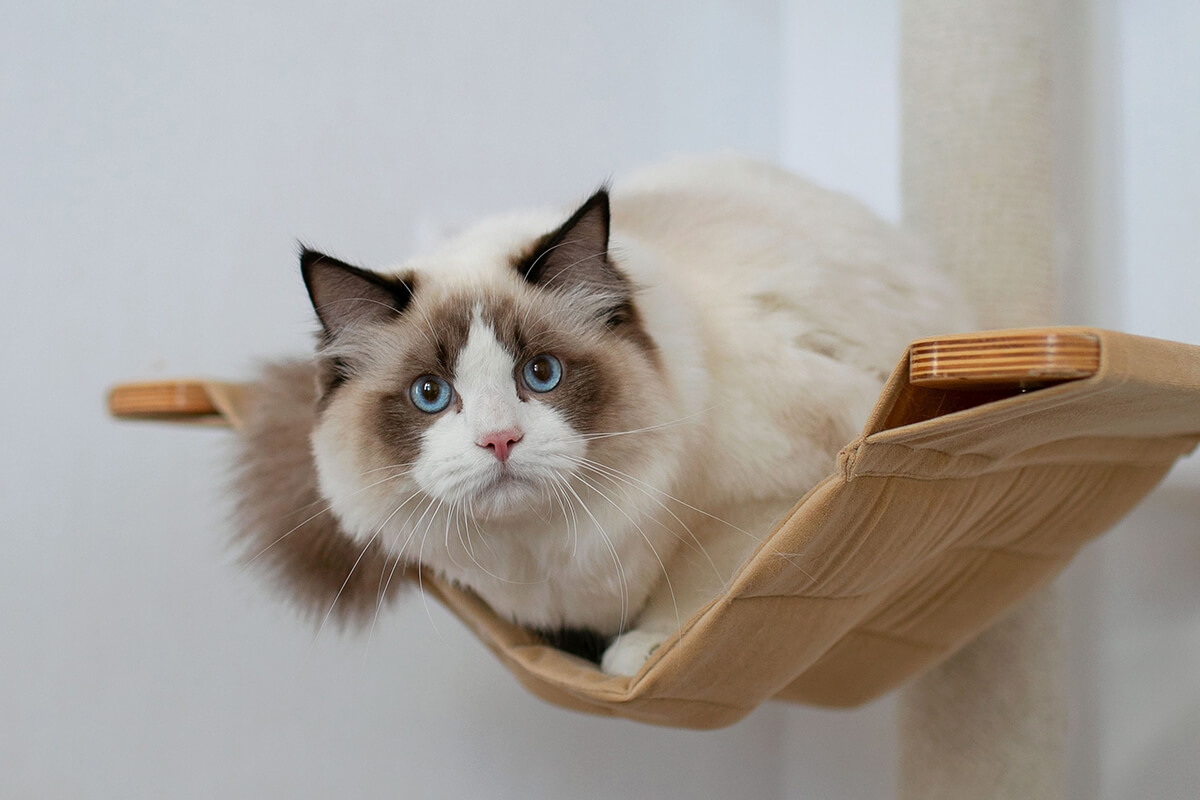
Ragdoll cat’s grooming and hygiene needs
Ragdoll cats require frequent grooming to avoid their coats matting and to keep that luxurious fur looking sleek. When matting occurs professional grooming will be required to restore the coat and this may be expensive. They are long haired cats so naturally they will be prone to some shedding, however, they do not shed as much as other long-haired breeds.
We suggest the following at-home grooming routine for maintaining your pet’s ears, coat, nails and eyes:
- Ragdolls need to be groomed at least twice a week using a pin or slicker brush to keep their coats silky and remove dead hair and skin.
- Focus your attention on the legs and belly first, as Ragdolls get tangled here the most.
- Ragdolls rarely need to be bathed unless they look particularly dirty. Grease can sometimes build up on the tail.
- You can clean your pet’s ears at home using a warm, slightly damp cotton wool pad. Avoid getting the area too wet, as this can cause problems. Be careful and gentle with your cat’s ears and never push anything into the ear to clean it, simply wipe out the top of the ear and never use a cotton bud.
- You can also clean your pet’s eyes with a soft wet cloth or cotton wool pad, removing any build-up of eye discharge and keeping the fur of your cat’s face clean.
- If your Ragdoll is an indoor cat you will also need to trim your cat’s nails to keep them healthy. You can do this at home using cat nail clippers or visit your local groomer if you find your pet is not cooperating.
Ragdoll cat’s behaviour and training needs
Due to their nature as extremely loving and gentle pets who love praise, Ragdolls respond well to training. Litter training Ragdoll kittens is the first step to ensuring your pet settles into their new home smoothly. Litter training requires placing the kitten in the litter tray every 1-2 hours, showing them how to use their paws while inside the litter tray and providing gentle encouragement. Soon your pet will pick up these cues and litter training will be complete. Litter training comes naturally to this bright breed.
You can also explore teaching your pet basic tricks, like fetching, playing hide and seek and responding to different commands using positive reinforcement (treats!) or a training clicker.
Early socialisation is always important to ensure your pet gets on well with everyone coming into your home and improve your cat’s overall behaviour. Problems like scratching furniture or excessive meowing can be resolved by making sure your cat has access to scratching posts to take this energy out on instead and socialising and playing with your pet every day with their favourite toys and treats. Ragdolls respond to positive reinforcement very well.
Mental and physical engagement for Ragdoll cats
Some suggestions for keeping your Ragdoll cat mentally stimulated include puzzle toys filled with WHISKAS® Cat Treats, cat shelves, cat trees, and wall-mounted climbing walls.
Ragdolls like to interact with their owners, and have been known to follow them around. They are nosey and want to be involved with whatever their family is doing, and require a lot of love and affection. They are also known to snuggle up beside you at bedtime. They are best suited to a family who has time to give to them.
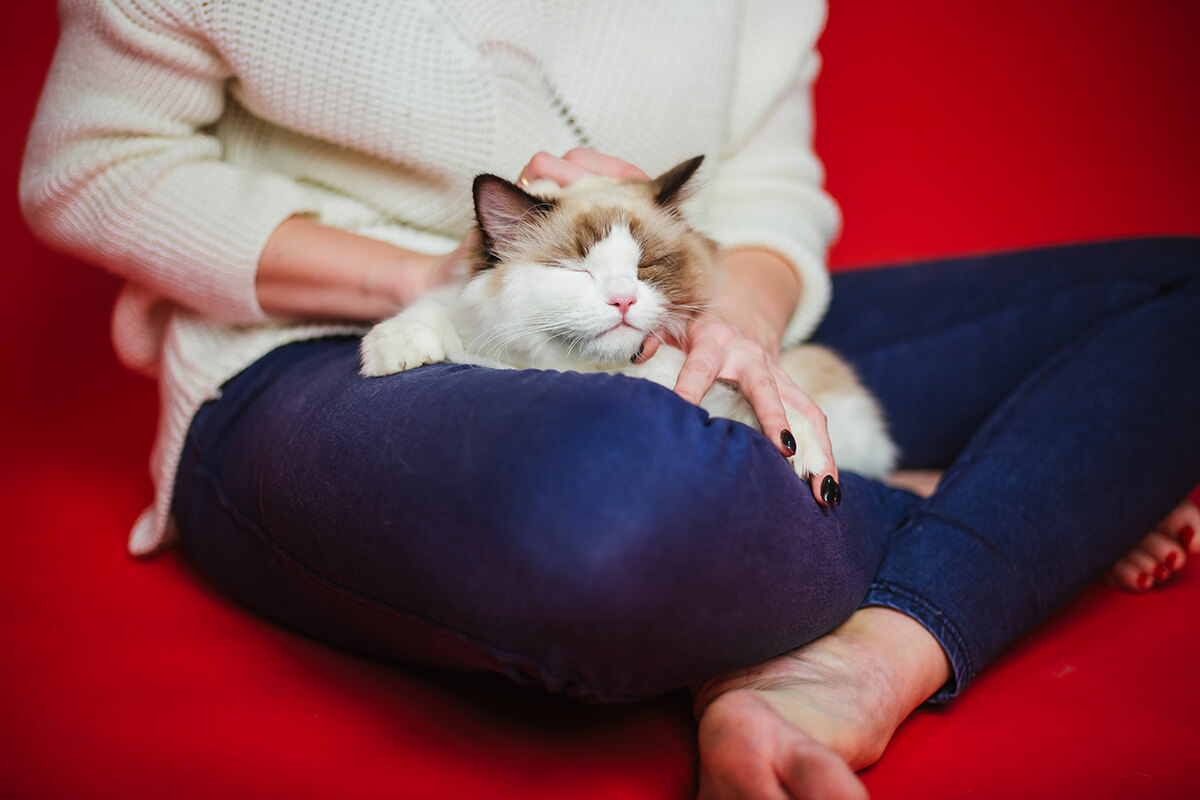
Ragdoll cat’s nutritional requirements
Your pet's diet is extremely important for maintaining their overall health, so selecting a high-quality cat food brand that you can trust is key. As with all cats it is important to feed them a high-meat diet which is rich in protein to keep their coat healthy and soft, including good quality wet food like WHISKAS® Cat Food.
Ragdolls can be prone to digestive issues so you may want to explore hypoallergenic or specialised diets if food sensitivity arises, these cat foods do not contain common allergens like beef, wheat, soya, dairy, eggs, and additives.
Hydration is also very important as this breed needs to drink a lot of water, it also helps avoid gastrointestinal and urinary tract issues that may be more common with this breed. Providing a water fountain as well as a bowl can help quench your pet's thirst, wet food also provides a natural source of hydration.
Are Ragdoll's suitable for families?
This breed is the perfect addition to any family, due to their sociable personalities and warm-hearted nature. They have an empathetic and kind temperament which makes them especially good around children, they are intuitive to human emotions and feelings. They also are very compatible with other pets, especially dogs!
Ragdoll cats' characteristics mean they are considered to be one of the most adaptable breeds, and they can thrive in all sorts of living situations. They are known to form strong attachments to their owners. Due to their overly friendly nature, some people maintain that these cats are more suitable to indoor settings, as they are presumed to be too trusting for the outdoors.
Tips and tricks for socialising your Ragdoll include:
- Gentle introductions
- Positive reinforcement
- Utilising playtime and positive interactions with new family and pets.
Finding a responsible breeder for Ragdoll cats
You must choose a responsible breeder to support ethical breeding practices and ensure the future health of your new pet. Responsible breeding practices play a key role in the well-being of any cat breed. Checking the cleanliness of the kitten’s living conditions and the quality of the kitten food provided is essential.
Doing your research is key to finding a reputable breeder, look for people with an excellent reputation within the Ragdoll community. Always use registered breeders. You can also ask for references from previous buyers, to see the mother and father of the kittens and request information about genetic testing and vaccinations.
Genetic health consideration
Unfortunately, all breeds have some common genetic health issues to be wary of, this further emphasises the need for genetic testing to ensure responsible breeding practices. Responsible breeders should show you the cat's paperwork, including genetic testing.
Ragdoll cat: FAQ
What are cons about Ragdoll cats?
Ragdoll cats are a purebred breed and therefore they can be very expensive. Ragdolls are also large, long haired cats that need regular grooming and may also require larger litter trays. Ragdolls should be fed a high quality, complete and balanced diet for their life stage and lifestyle.They also require lots of love and affection as they are known to be lap cats.
Do Ragdolls get aggressive?
Ragdolls were specifically bred for their loving and kind personalities, they are true “lap cats”, as they crave human affection and cuddles. Their temperament makes them the perfect family pet. Ragdolls get along with other pets, especially dogs and are known to be a very sociable breed of cat.
How long can a Ragdoll be left alone?
Ragdolls are sociable animals who form strong attachments to their owners. If you are going to be leaving your pet unattended for longer periods of time, a ragdoll may not be the best breed for you. Ideally, this breed should not be left alone for longer than 8 hours a day as they can be prone to separation anxiety.
Ultimately, Ragdolls are gorgeous, sociable animals who create extremely strong bonds with their owners. They make truly loving, loyal and intuitive pets and are a perfect addition to your family. Ragdolls may require a little more attention and affection than other breeds to avoid separation anxiety, but they will thank you by following you everywhere and showering you with cuddles.
Interested in finding out more about different cat breeds? Check out our breed finder page.

